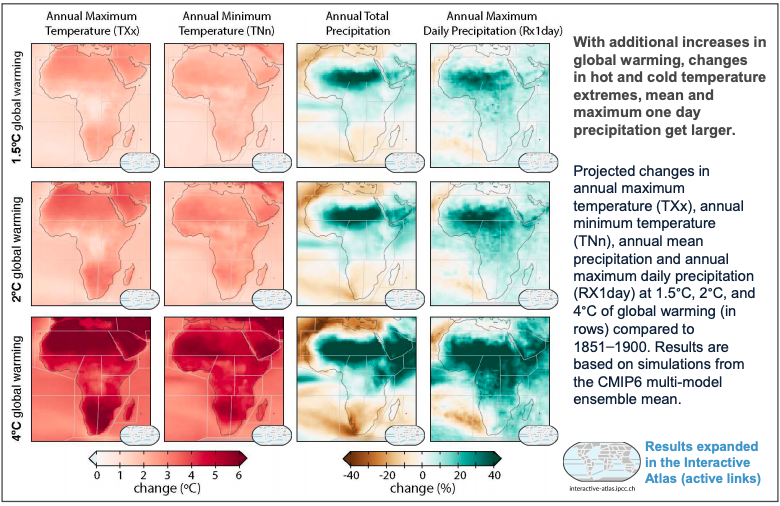As global temperatures rise, extreme weather events such as heatwaves, droughts, floods, and heavy rainfall will become more widespread, the IPCC sixth report concludes.
A number of Climate System Analysis Group (CSAG) researchers contributed to the Working Group I component of the Sixth Assessment Report of Intergovernmental Panel on Climate Change (IPCC) which was released on Monday 9 August 2021. This report addresses the most up-to-date physical understanding of the climate system and climate change, bringing together the latest advances in climate science, and combining multiple lines of evidence from paleoclimate, observations, process understanding, and global and regional climate simulations.
Bruce Hewitson and Izidine Pinto were lead authors on Chapters 10 (Linking global to regional climate change) and Chapter 11 (Weather and climate extreme events in a changing climate) respectively. Piotr Wolski contributed significantly to an important case study on the Day Zero drought in Chapter 10 (Linking global to regional climate change), Anna Steynor and Christopher Jack contributed to sections on informing adaptation and climate services in Chapter 12 (Climate change information for regional impact and for risk assessment) and Christopher Lennard contributed to sections on regional climate in Chapter 10, Chapter 12 and the Atlas.
The report highlights that “Human-induced climate change is already affecting many weather and climate extremes in every region across the globe.” and “Evidence of observed changes in extremes such as heatwaves, heavy precipitation, droughts, and tropical cyclones, and, in particular, their attribution to human influence, has strengthened since AR5”. Over many parts of the southern Africa region increases in some types of extreme weather events have been observed and these include heat extremes, heatwaves, agricultural and ecological droughts and heavy rainfall events. With additional increases in global mean temperature, the region will experience further increases in these events. Unless there are deep reductions in greenhouse gas emissions, limiting warming to 1.5ºC below pre-industrial levels will be beyond reach with significantly greater impacts expected. The Working Group II component of the AR6, that assesses the impacts these changes will have on society and the environment and the potential for adaptation, will be released in February 2022.

The fact sheet with the entry point for regionalized information in the Chapters, the Technical Summary and the Interactive Atlas for Africa can be found in this link with accompanied documentation here.
And the full report can be found here
Cover image: IPCC WG1 AR6 SPM Report Cover -Changing by Alisa Singer. Credit: Alisa Singer / IPCC.
